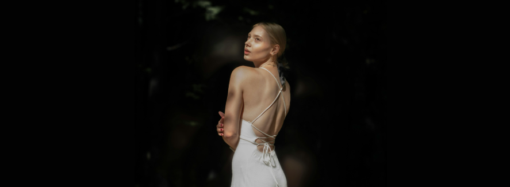By now, almost everybody is familiar with the phenomenon of “social justice warriors”, a.k.a. SJWs. Originally it was a pejorative moniker, but it seems that its bearers have recently adopted it as a badge of honor.
SJWs embrace a “critique” of various forms of “oppression”: racism, “the patriarchy,” “heteronormativity,” and capitalist exploitation of the poor and the environment. That motivates advocacy for the “liberation” of “brown people,” women, and “LGBTQ” people, along with socialism and environmentalism. SJWs who are really “woke” focus on “intersectionality”: the situation of people who belong to more than one oppressed class at once.
What is not so widely understood, however, is why the SJW perspective is now so dominant in academia.
It results from the gradual and now almost-complete triumph of “critical theory” among scholars in the humanities and social sciences. Yet once one understands that triumph and its institutionalization, it becomes apparent that critical theory needs a good critique itself. Unfortunately, its adherents seem incapable of meeting that need, and have (with some success) shut down others who would mount such a critique.
Like feminist maverick Camille Paglia before him, University of Toronto clinical psychologist Jordan B. Peterson has risen to prominence by delivering (still-piecemeal) critiques of critical theory’s dominance and self-understanding. He thus gives voice to an inchoate but growing grassroots concern, while at the same time angering most of secular academia all the more because he does it from a truly scientific perspective.
In an article at Quillette, Uri Harris describes how that attitude manifested itself in journalist Cathy Newman’s contentious BBC interview of Peterson, in which he foiled her repeated attempts to put nasty words in his mouth. He also forced her, gently, to admit that she had no answer to his rejection of the double standard he notices in advocates of social-justice critique, by which members of “oppressed” groups or their advocates are allowed to “offend” him, but he’s not allowed to “offend” them. In so doing, Harris raises the right questions about why Peterson’s challenge is so unwelcome.
Thus:
“The methodology underpinning much of the social justice perspective is known as critical theory. What’s notable about critical theory is that it specifically distinguishes itself from ‘traditional’ theories through its emphasis on criticism. This makes the apparent unwillingness of its adherents to engage with criticism themselves especially noteworthy. When you explicitly emphasise your criticality and base your theory on a commitment to look beneath appearances and see things as they really are, you don’t get to be selectively critical. So why does this phenomenon exist?”
As Harris notes, the academic critical-theory establishment now constitutes a “new bourgeoisie” that operates similarly to how Karl Marx thought the economic bourgeoisie does. The latter thought that, by controlling the economy, the bourgeoisie controlled the culture, and thus could successfully preclude not only discussion that called their dominance into question, but the very awareness that the values it presented as universal were merely those serving their self-interest. Marxism, and then critical theory, exploded that bubble.
But has critical theory created a similar bubble of its own?
It seems so. For the question arises, or should arise: Are the values of critical theorists and social-justice warriors themselves universal, and thus so evidently correct that deviating from them can result only from “false consciousness” or outright malice?
Dr. Peterson does not raise or engage that question directly, and indeed to some extent he shares such values. But he refuses to examine social realities solely through that lens and raises pointed questions about the assumptions and emphases of the social-justice perspective itself. De facto, that amounts to a critique of “critique”—which in turn has made him an outlier even in his own field. Nobody questions his scientific competence; they just attack his person as “bigoted” and “dangerous.” Merely by raising questions about said perspective, he is abhorred as a lackey of the “oppressor” class of white, heterosexual males.
Regardless of where one stands politically, however, it should not be hard to see that people like Peterson are needed. Otherwise, who would critique the critics themselves? Nobody should be beyond criticism, and the best kind of critical theory is one that makes provision for self-critique.
—
Dear Readers,
Big Tech is suppressing our reach, refusing to let us advertise and squelching our ability to serve up a steady diet of truth and ideas. Help us fight back by becoming a member for just $5 a month and then join the discussion on Parler @CharlemagneInstitute!
















Leave a Comment
Your email address will not be published. Required fields are marked with *